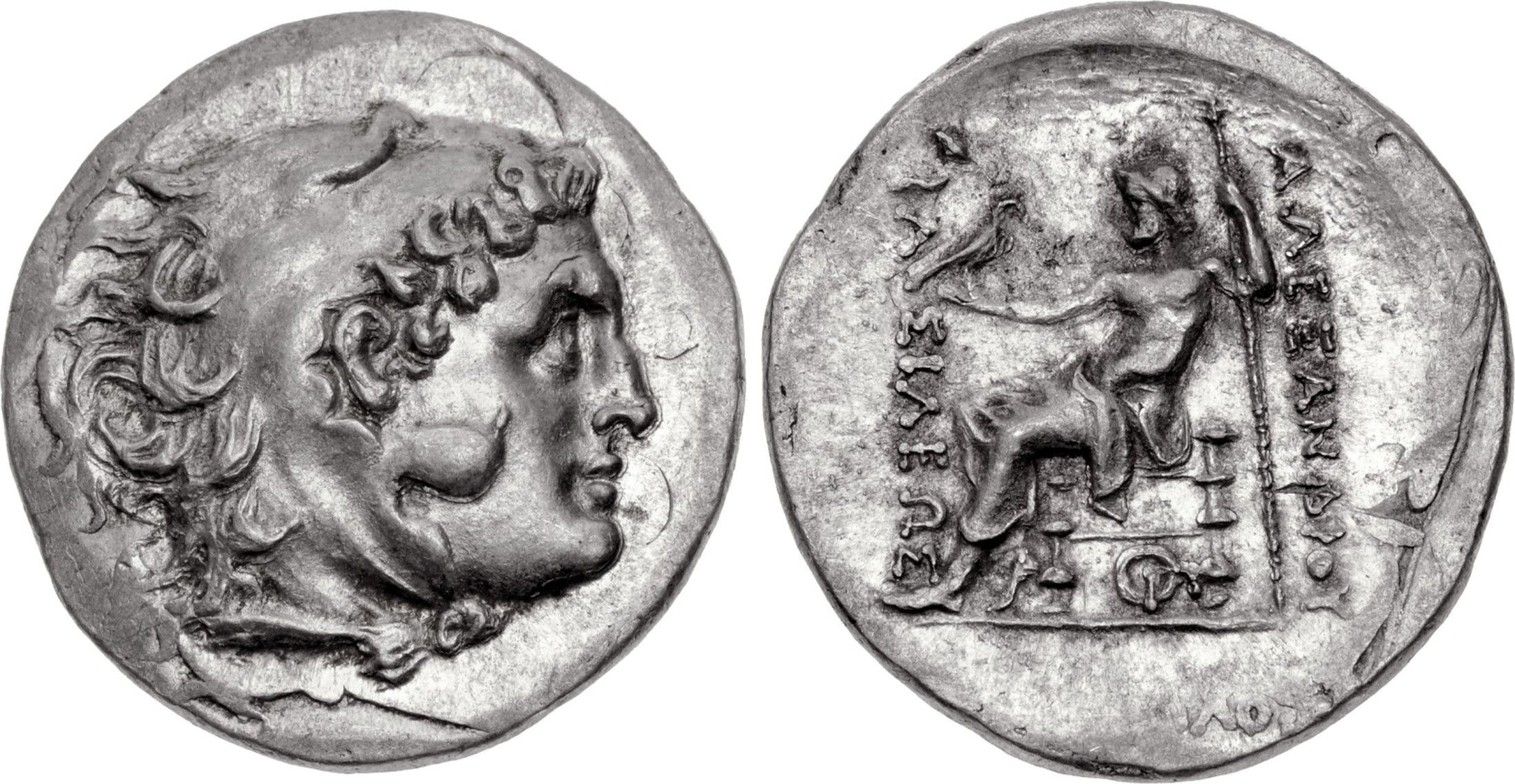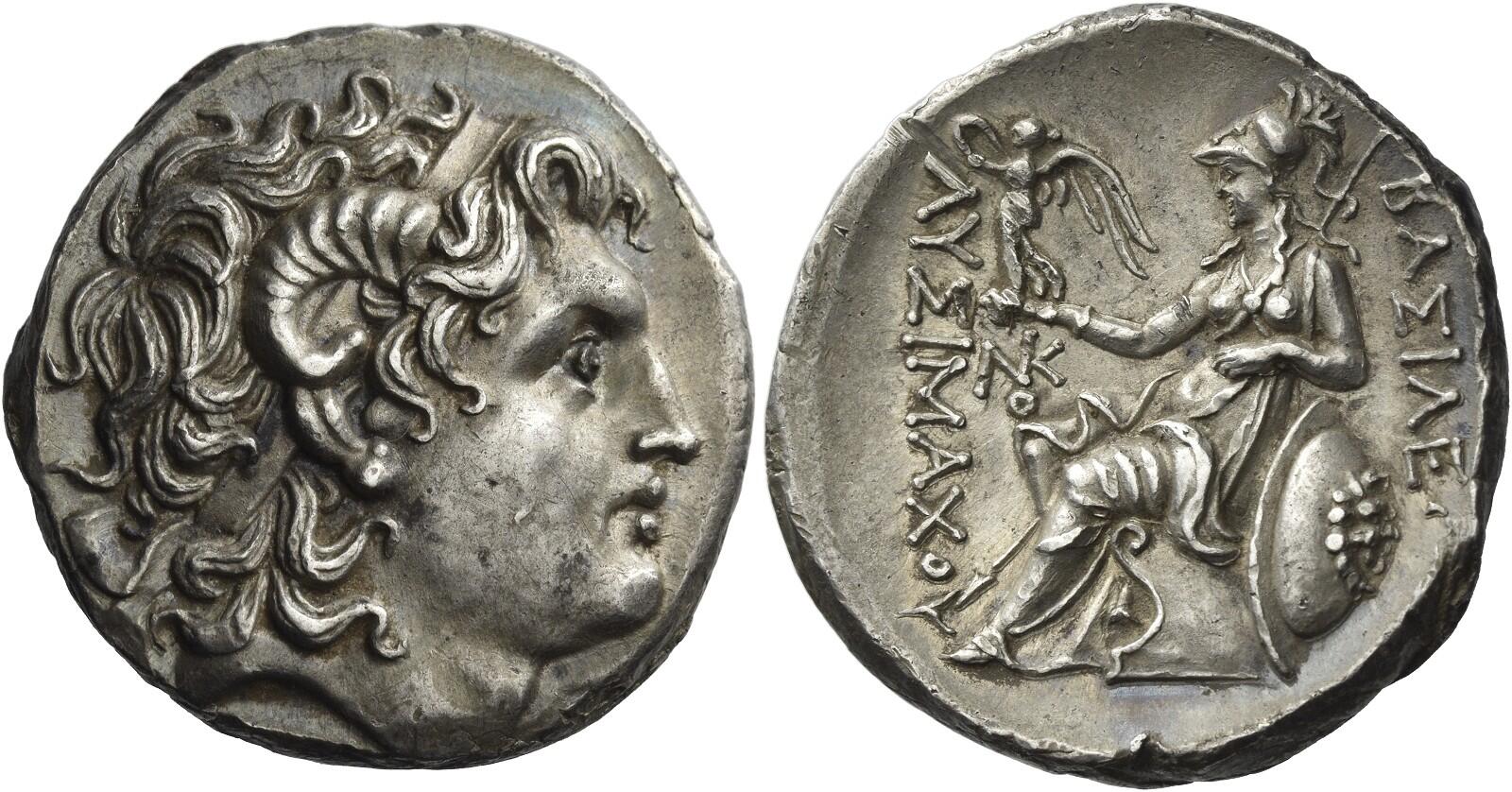250 BCE - 200 BCE | ΒΑΣΙΛΕΩΣ ΑΛΕΧΑΝΔΡΟΥ
|
|
Sale(s)Sale(s) ᵖ:
|
Classical Numismatic Group, 91, 19 Sept. 2012, lot 215
|
|
|
|
Description
| ObverseInscription or printing placed on the obverse.:
|
Head of Herakles right, wearing lion skin
|
ReverseInscription or printing placed on the reverse.:
|
ΒΑΣΙΛΕΩΣ ΑΛΕΧΑΝΔΡΟΥ (Greek) Zeus Aëtophoros seated left, monogram below throne
|
Mint and issuing power
Chronology
| FromIdentifies the initial date in a range assigned in a numismatic context. 250 BCE toIdentifies the final date in a range assigned in a numismatic context.. 200 BCE
|
Hellenistic 323-30 BC  periodTime period of the numismatic object. periodTime period of the numismatic object.
|
Physical description
MetalThe physical material (usually metal) from which an object is made.: Silver 
|
WeightWeight of the numismatic object (in grams). in grams: 17.3817.38 g <br />17,380 mg <br />
|
DenominationTerm indicating the value of a numismatic object. Examples: tetradrachm, chalkous, denarius.: tetradrachm 
|
AxisDescribes the directional relationship between the obverse and reverse of a numismatic object.: 1212 mm <br />1.2 cm <br />
|
| DiameterDescribes diameter of an object (in mm).: 3030 mm <br />3 cm <br />
|
StandardStandard.: Attic
|
References
Description
| ObverseInscription or printing placed on the obverse.:
|
Diademed head of the deified Alexander r., with horn of Ammon
|
ReverseInscription or printing placed on the reverse.:
|
ΒΑΣΙΛΕΩΣ – ΛΥΣΙΜΑXΟΥ (Greek) Athena enthroned l., holding Nike and spear in r. hand and resting l. elbow on shield decorated with medusa
|
Mint and issuing power
Chronology
| FromIdentifies the initial date in a range assigned in a numismatic context. 294 BCE toIdentifies the final date in a range assigned in a numismatic context.. 250 BCE
|
Hellenistic 323-30 BC  periodTime period of the numismatic object. periodTime period of the numismatic object.
|
Physical description
| DenominationTerm indicating the value of a numismatic object. Examples: tetradrachm, chalkous, denarius. ᵖ:
|
tetradrachm 
|
StandardStandard. ᵖ:
|
Attic
|
References
References
- ^ Price, Martin Jessop (1991), The Coinage in the Name of Alexander the Great and Philip Arrhidaeus: a British Museum Catalogue, 2 vol., Zürich-London, 637 p., 637 p., clix pl.
- ^ Callataÿ, François de (2021), “On pattern and purpose of overstrikes of late Hellenistic tetradrachms in Thrace Macedonia”, in Ulrike Peter and Bernhard Weisser (eds.), Thrace. Local coinage and regional identity, Berlin Studies of the Ancient World 77, Berlin, Topoi, p. 263-289.

